- europages
- >
- COMPANIES - SUPPLIERS - SERVICE PROVIDERS
- >
- crushing screening plant
Results for
Crushing screening plant - Import export
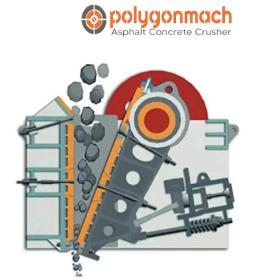
POLYGONMACH MAKINE SANAYI VE TICARET LTD STI
Turkey
In order to reduce size sort and separate different kinds of materials including stones ores and minerals crushing and screening plants also called crushing and screening systems are facilities used for this purpose. Screens are used to sort or separate the crushed material according to size shape or other properties. These plants normally consist of crushers for breaking large materials into smaller pieces. Plants for crushing and screening primarily serve to change raw materials into the precise sizes or forms needed for additional processing or use in a variety of industries including mining construction and recycling. While the screening equipment divides the crushed material into various fractions according to predetermined criteria the crushing equipment aids in the breakdown of large materials into manageable sizes.
Request for a quote
ECSMT MACHINERY EQUIPMENTS
Turkey
ECMT RUROMIX EM130 CRAWLER MOBILE COUNTERATTACK CRUSHER STATION Strong and stable, Best quality, Long service life and low operating cost, Effectiveness and efficiency.
Request for a quote
OPT MAKINE
Turkey
Jaw crushers are the type of crushers used to reduce big-size rocks by compression, i.e. by mechanical pressure applied by two jaws of the crusher. These crushers are used as primary and secondary crushers in crushing plants. Jaw crushers are mostly preferred crushers because of their ability to crush all kinds of materials of any hardness. Our jaw crushers assures low and easy operation & maintenance cost. Our range of jaw crushers includes 6 different types of Primary and Secondary jaw crushers from 610 x 380 mm type to 1300 x 1100 mm mouth opening. The high performance, reliability, durability and user-friendly adjustment mechanisms of our jaw crushers due to their high flywheel speeds, jaw grabbing angles, special geometries of their pits with safety plates and rear blocks provide unique operating advantages to its users.
Request for a quote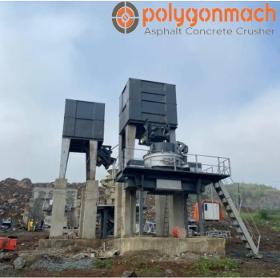
POLYGONMACH MAKINE SANAYI VE TICARET LTD STI
Turkey
A basalt crushing and screening plant is a facility that meets the purposes of crushing and screening of basalt stones into aggregate sizes demanded on construction fields, infrastructure, and industry. Basalt is an igneous rock with basaltic features. Large pieces of basalt are broken into smaller ones in the process of crushing, made with such equipment as jaw crushers or cone crushers. After the primary crushing stage, it is separated by sifting in order to segregate the particular material according to size, enabling the production of different sizes of the same material. The efficiency of separation for these highly intermixed crushed basalt materials, in different fractions by size, by the vibrating screens makes them an integrative screen in the process. It is t he enormous product that comes out from basalt\toc crushing and screening plants. It can be used as high-quality aggregate for making concrete, building highways, making gardens, and other constructions that need firm an
Request for a quote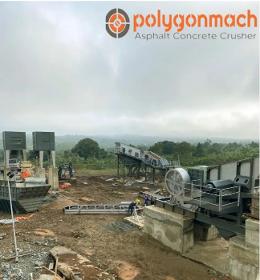
POLYGONMACH MAKINE SANAYI VE TICARET LTD STI
Turkey
The gabbro crushing and screening plant shall be designed capable of processing gabbro, a kind of coarse-grained, dark-colored, and dense igneous rock. Gabbro majorly consists of calcium-rich plagioclase feldspathoid and pyroxene; at times, it also contains olivine, hence very strong. This toughness makes gabbro an excellent source of construction aggregates and road base, but it requires a very robust processing facility to crush and screen efficiently into usable products. Plants for crushing and screening of gabbro are equipped with various heavy-duty machinery, including crushers, screens, and conveyors, all working together to break down large hunks of gabbro into aggregate of varied sizes. The end products are used in different construction projects whereby strength, durability, and quality are paramount concerns.
Request for a quote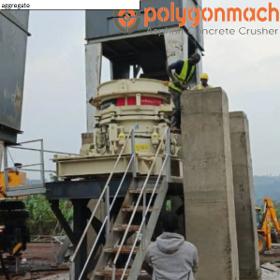
POLYGONMACH MAKINE SANAYI VE TICARET LTD STI
Turkey
A basalt crushing and screening plant is a facility that meets the purposes of crushing and screening of basalt stones into aggregate sizes demanded on construction fields, infrastructure, and industry. Basalt is an igneous rock with basaltic features. Large pieces of basalt are broken into smaller ones in the process of crushing, made with such equipment as jaw crushers or cone crushers. After the primary crushing stage, it is separated by sifting in order to segregate the particular material according to size, enabling the production of different sizes of the same material. The efficiency of separation for these highly intermixed crushed basalt materials, in different fractions by size, by the vibrating screens makes them an integrative screen in the process. It is t he enormous product that comes out from basaltoc crushing and screening plants.
Request for a quote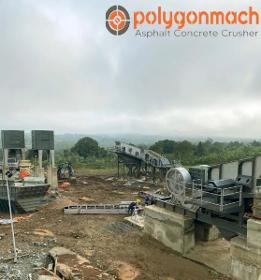
POLYGONMACH MAKINE SANAYI VE TICARET LTD STI
Turkey
The gabbro crushing and screening plant shall be designed capable of processing gabbro, a kind of coarse-grained, dark-colored, and dense igneous rock. Gabbro majorly consists of calcium-rich plagioclase feldspathoid and pyroxene; at times, it also contains olivine, hence very strong. This toughness makes gabbro an excellent source of construction aggregates and road base, but it requires a very robust processing facility to crush and screen efficiently into usable products. Plants for crushing and screening of gabbro are equipped with various heavy-duty machinery, including crushers, screens, and conveyors, all working together to break down large hunks of gabbro into aggregate of varied sizes. The end products are used in different construction projects whereby strength, durability, and quality are paramount concerns. The main operation in a gabbro crushing and screening plant is by first extracting raw gabbro from quarries.
Request for a quote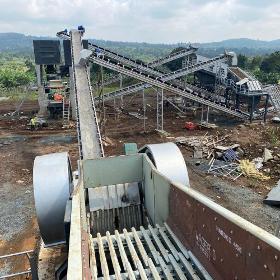
POLYGONMACH MAKINE SANAYI VE TICARET LTD STI
Turkey
How do you operate a crushing and screening plant? In mining operations or quarry sites a stationary crushing plant is a permanent installation used for crushing and sizing large quantities of raw materials into smaller more manageable pieces. An efficient and highly effective crushing and screening process is created by strategically arranging a variety of crushers screens conveyors and feeding devices in stationary crushing plants which are fixed in one location. Static crushing plants are fixed in one location as opposed to mobile crushing plants which can be moved and set up in different locations to meet temporary processing needs. These plants long lifespan makes them ideal for large-scale mining quarrying and recycling operations where the volume and consistency of the material being processed necessitate a dependable long-term solution with high productivity.
Request for a quote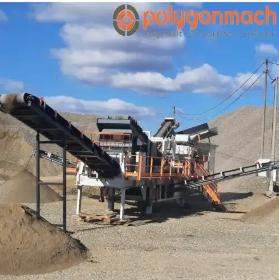
POLYGONMACH MAKINE SANAYI VE TICARET LTD STI
Turkey
For a variety of uses such as quarry mining and construction mobile crushing and screening plants are advanced machinery systems designed to crush and screen rocks minerals and other materials. These plants combine screening and crushing operations onto a single mobile platform providing great efficiency and flexibility. These plants are a popular option for many industrial operations because they save space and money by doing away with the need for separate crushing and screening units.In order to reduce big chunks of stone and other materials into smaller more manageable sizes for a range of applications mobile crushing and screening plants work by coordinating a series of coordinated actions. First materials like stones are fed into the feeder which controls the flow of materials to the crusher so that the stream is steady and easy to handle.
Request for a quote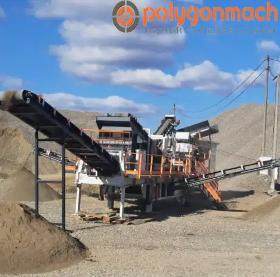
POLYGONMACH MAKINE SANAYI VE TICARET LTD STI
Turkey
What are the functions of mobile screening and crushing plants? For a variety of uses such as quarry mining and construction mobile crushing and screening plants are advanced machinery systems designed to crush and screen rocks minerals and other materials. These plants combine screening and crushing operations onto a single mobile platform providing great efficiency and flexibility. These plants are a popular option for many industrial operations because they save space and money by doing away with the need for separate crushing and screening units. Which Components Make Up Mobile Crushing and Screening Plants? 1. Feeder The feeder controls the flow of stones and minerals into the crushing equipment making it a crucial part of mobile crushing and screening plants. Feeders provide a constant and regulated material delivery avoiding jams and enabling a steady processing rate.
Request for a quote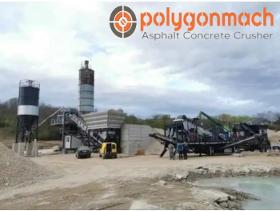
POLYGONMACH MAKINE SANAYI VE TICARET LTD STI
Turkey
A Mobile Wheeled Crushing Screening Plant is a versatile and mobile plant used in various industries for crushing, screening, and sorting operations. This type of plant is mounted on wheels for easy transportation between various job sites and, therefore, allows for efficient on-site processing of materials. A mobile, wheeled processing plant performs the main function of transforming stones, minerals, or construction waste into given dimensions according to the need and separating and screening processed material with respect to given specifications. These are high-turnover, critical plants in the construction, mining, and recycling industries, in which flexibility and mobility are important for maximizing operational efficiency and reducing transportation costs.
Request for a quote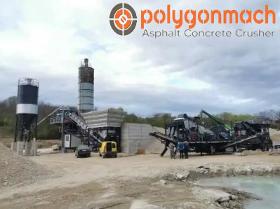
POLYGONMACH MAKINE SANAYI VE TICARET LTD STI
Turkey
A Mobile Wheeled Crushing Screening Plant is a versatile and mobile plant used in various industries for crushing, screening, and sorting operations. This type of plant is mounted on wheels for easy transportation between various job sites and, therefore, allows for efficient on-site processing of materials. A mobile, wheeled processing plant performs the main function of transforming stones, minerals, or construction waste into given dimensions according to the need and separating and screening processed material with respect to given specifications. These are high-turnover, critical plants in the construction, mining, and recycling industries, in which flexibility and mobility are important for maximizing operational efficiency and reducing transportation costs. The common mobile wheeled crushing screening plant mainly includes a primary crusher for an initial crush, secondary crushers for processing further, and screens to separate the crushed material into various sizes.
Request for a quote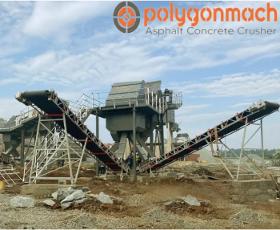
POLYGONMACH MAKINE SANAYI VE TICARET LTD STI
Turkey
The 500-750 TPH Basalt Crushing Screening Plant is an industrial installation designed for processing big rocks made of basalt into varied dimensions of basalt aggregates within a range of 500/750 tonnes each hour. Basalt is a pretty dense volcanic rock, durable, and strong, which is why it is at the top of the list of items used in construction works that require strenuous and long-lived materials. These plants are highly equipped with superior machinery and equipment required to effectively and more efficiently process huge loads of basalt, which is reduced to smaller sizes that mainly make up the need for various construction and industrial applications. The processed basalt aggregates are applied to a wide range of projects, including those for road construction, infrastructure development, and the production of concrete and asphalt products.
Request for a quote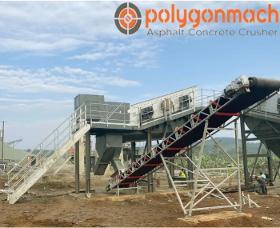
POLYGONMACH MAKINE SANAYI VE TICARET LTD STI
Turkey
A 150-250 tph Basalt Crushing and Screening Plant is a progressive facility that processes 150-250 tons of basalt stone at input sizes of 600 mm, into end products of 0-5mm, 5-12 mm, 12-24 mm. These are appropriate for road constructions as well as commercial purposes. These plants are generally designed to crush large basalt rocks into smaller fragments and screen them to produce high-quality aggregates suitable for applications in construction, infrastructure development, and industrial projects. Manufacturing robust materials by means of efficient basalt processing, these plants are important contributors to the various construction endeavors that must be carried with the utmost certainty in mind.
Request for a quote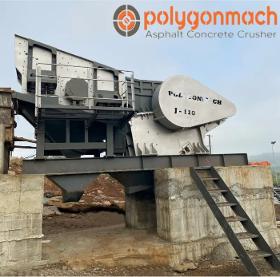
POLYGONMACH MAKINE SANAYI VE TICARET LTD STI
Turkey
100-150 tph Basalt Crushing and Screening Plants are specialized facilities designed for processing basalt stones into various sizes of aggregates at a throughput capacity ranging from 100 to 150 tons per hour. These plants are equipped with machinery and equipment tailored for handling basalt, a durable volcanic stone known for its strength and versatility. The primary function of these plants is to crush large basalt stones into smaller fragments and then screen them to produce high-quality aggregates suitable for applications in construction, infrastructure development, and industrial projects. By efficiently processing basalt, these plants play a vital role in producing robust materials essential for various construction endeavors requiring resilient and reliable aggregates.
Request for a quote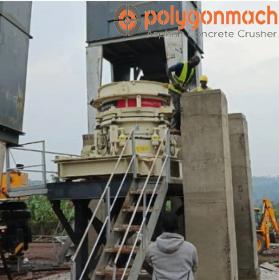
POLYGONMACH MAKINE SANAYI VE TICARET LTD STI
Turkey
A 40-60 TPH Basalt Crushing Screening Plant represents the optimal configuration in regard to crushing and curing basalt stones for a proper production facility. Basalt, the volcanic rock, with phenomenal indicators for stress, is filled with the unknown minerals, having extremely unique properties, hardness, and durability, making it easy to produce. These plants intake large stones of basalts, crush them into smaller fragments using a primary crusher, and then secondary crushers take over to refine the material in order to obtain aggregate fractions of certain sizes. The vibration screens classify the crushed basalts into different size fractions. This systematic approach guarantees that projects in construction, infrastructure, and landscaping that require top-quality basalt aggregates meet the final quality and usability required.
Request for a quote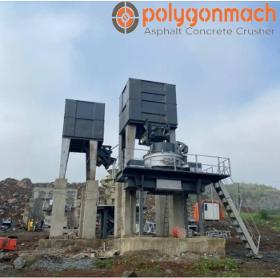
POLYGONMACH MAKINE SANAYI VE TICARET LTD STI
Turkey
A 700 1000 TPH Limestone Crushing and Screening Plant is a facility designed to process limestone raw material into high-quality aggregates with a throughput capacity of 700 to 1000tons per hour. These plants are specifically designed to cater to the demands of different industries like construction, road building, and landscaping, where such high-quality limestone aggregates are required. It usually hosts primary crushing equipment, screening machinery, and conveyors—all designed to handle limestone material conveniently. The initial processing of larger limestone rocks into smaller, more workable fragments is done with primary crushers like jaw crushers and cone crushers. This is very important for the sizing of the raw limestone material, required for further processing, into a size that is ready for making the final product, as per the defined size and quality requirements.
Request for a quoteDo you sell or make similar products?
Sign up to europages and have your products listed
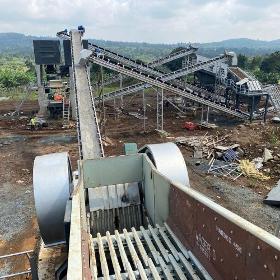
POLYGONMACH MAKINE SANAYI VE TICARET LTD STI
Turkey
The 40-60 tph granite crushing and screening plant is an intermediate-sized facility, compact yet potent, designed to deal with small to medium-sized operations where granite is crushed and screened into such products. These plants can be configured either as mobile or fixed installations based on project demand. Plants primarily produce high-quality aggregates from granite stones, which are major material used in constructions, infrastructure development, and other industrial applications. These are best suited for works whose requirements fall within the moderate output of crushed granite at a time between 40 to 60 tons per hour, assuring effectiveness and reliable service.
Request for a quote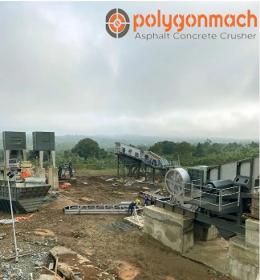
POLYGONMACH MAKINE SANAYI VE TICARET LTD STI
Turkey
A 40-60 TPH Limestone Crushing and Screening Plant is a facility designed to process limestone raw material into high-quality aggregates with a throughput capacity of 40 to 60 tons per hour. These plants are specifically designed to cater to the demands of different industries like construction, road building, and landscaping, where such high-quality limestone aggregates are required. It usually hosts primary crushing equipment, screening machinery, and conveyors—all designed to handle limestone material conveniently. The initial processing of larger limestone rocks into smaller, more workable fragments is done with primary crushers like jaw crushers and cone crushers. This is very important for the sizing of the raw limestone material, required for further processing, into a size that is ready for making the final product, as per the defined size and quality requirements.
Request for a quote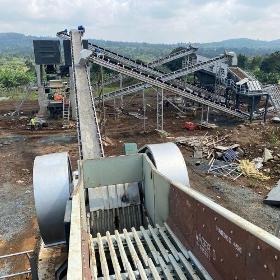
POLYGONMACH MAKINE SANAYI VE TICARET LTD STI
Turkey
The 700-1000 TPH dolomite crushing screening plant shall be a high-capacity industrial plant built to crush dolomite ore, which can produce all the required aggregates for construction projects. The term "TPH" means how many tonnes of dolomite ore the plant can get through in an hour, which is between 700 to 1000 tonnes per hour. This capability makes it be a core element in vast construction projects that require dolomite aggregates continuously. Dolomite, being of the composition calcium magnesium carbonate, is an essential material for construction, more so in the manufacture of concrete aggregates, road base materials, and other important building resources. These plants thus ensure that dolomite is well processed and sorted out to suit the specifications of construction applications.
Request for a quote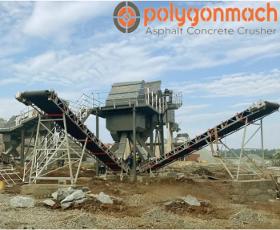
POLYGONMACH MAKINE SANAYI VE TICARET LTD STI
Turkey
A 500-750 TPH Dolomite Crushing Screening Plant is a technology-driven large processing facility meant to provide high-throughput dolomite ore processing into different sizes of aggregates against use in the construction field. The abbreviation "TPH" stands for "tonnes per hour," and it means a plant of this kind can process from 500 to 750 tonnes of dolomite ore every hour. Dolomite plays a key role as a material in the construction industry, mostly produced into concrete aggregates and road base materials, among others of importance. These plants are important for the crushing and screening of dolomite ore into various sizes that would be needed for any specified construction project by providing a steady supply of high-quality aggregates, which are essential in a broad range of applications in the entire construction industry.
Request for a quote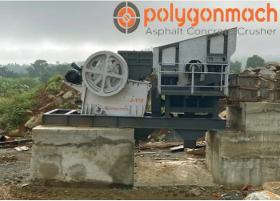
POLYGONMACH MAKINE SANAYI VE TICARET LTD STI
Turkey
350-500350-500 tph Dolomite Crushing Screening Plants are modern industrial plants designed to process dolomite ore in order to produce a great variety of dolomite aggregates that are demanded by different construction projects. The abbreviation "tph" itself means the capacity of the plant dealing with the amount of material per hour; therefore, this plant processes 350 to 500 tons of dolomite ore in an hour. Dolomite, the calcium magnesium carbonate mineral, is very essential in the construction industry in making concrete aggregates and road base materials, among other important construction materials. These high-capacity plants play an important role in the crushing and screening of dolomite ore efficiently into specified requirements for construction projects, thereby ensuring a constant supply of superior quality dolomite aggregates for construction applications.
Request for a quote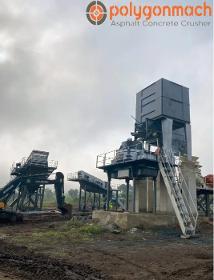
POLYGONMACH MAKINE SANAYI VE TICARET LTD STI
Turkey
The 250-350 tph Dolomite Crushing Screening Plants are developed for producing dolomite aggregates of desired sizes required for construction works. In this, "tph" means tons per hour. So, the 250-350 tph dolomite crushing screening plants can handle 250 to 350 tonnes of dolomite ore within an hour. Being the calcium magnesium carbonate mineral, dolomite is no doubt one of the critical materials used in construction processes, in the production of concrete aggregates and various road base materials, among others. Such plants are, therefore, very important in crushing and screening the dolomite ore efficiently to satisfaction on the specific requirements of the construction projects, thus ensuring a constant supply of quality dolomite aggregates for various uses meant for construction.
Request for a quote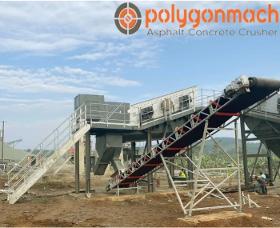
POLYGONMACH MAKINE SANAYI VE TICARET LTD STI
Turkey
The 150-250 TPH Dolomite Crushing Screening Plant is an installation designed to treat specially dolomite-bearing ore. After processing through crushing and screening, dolomite is produced in different aggregate sizes that find target applications. The abbreviation "TPH" expands into "tonnes per hour," asserting this plant's capacity to treat 150-250 tonnes of dolomite ores on an hourly basis. Dolomite is a type of double-carbonate mineral. Such a composition of calcium magnesium carbonate has immense use, mostly in the construction industry, both of concrete aggregates and in the manufacture of road-based materials. Such plants are involved in the effective crushing and screening of dolomite ore for the production of quality aggregates, which form the fundamental ingredients for infrastructure construction works where supply has to be ensured.
Request for a quote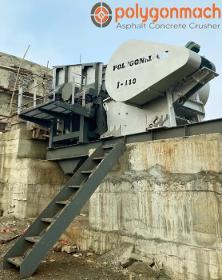
POLYGONMACH MAKINE SANAYI VE TICARET LTD STI
Turkey
A 50-100 TPH dolomite crushing screening plant is one constructed to process dolomite ore into various sizes of aggregates that are used in the construction. "TPH" represents "tons per hour"; the plant has the ability and capacity to deal with between 50 and 100 tons of dolomite ore every hour. Dolomite is a widely used carbonate calcium magnesium carbonate mineral in construction. Basic work undergone by the plant includes the crushing and screening of dolomite in an efficient manner to produce different sizes of aggregates for its concrete, road bases, and other construction uses.
Request for a quote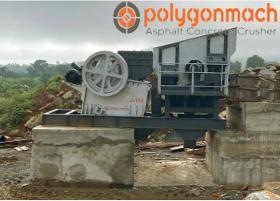
POLYGONMACH MAKINE SANAYI VE TICARET LTD STI
Turkey
The 250-350 tph Granite Crushing and Screening Plant is technically a very advanced construction that is meant to produce granite stones with different aggregates of 0-5, 5-10, 10-15, and 15-20 mm. These plants consist of primary crushers, secondary crushers, vibrating screens, conveyors, and feeders that have been designed to optimize the crushing and screening process fully. The primary crushers of these plants perform a highly important function in the process of fragmentation of large stones of granite and their crushing into small pieces, which will later be reduced by the secondary crushers to the desired size of aggregates. After that, the fractioned material goes through the vibrating screens for a strict screening and separation into fractions according to size, thus providing that the final aggregates will be in strict compliance with high-quality specifications for use in construction works and other industrial applications.
Request for a quote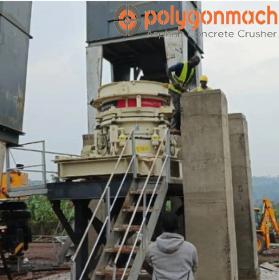
POLYGONMACH MAKINE SANAYI VE TICARET LTD STI
Turkey
A 40-60 TPH dolomite ore crushing and screening plant is a dolomite processing plant, which processes dolomite ore into the required sizes of any kind of aggregate that is used in construction. A TPH is a unit representing tonnes per hour. In this description, the plant has an input capacity to accommodate and treat between 40 and 60 tons of dolomite ore per hour. Dolomite is an important mineral rock that is high in calcium magnesium carbonate and finds much application in the construction industry, particularly in the manufacture of concrete aggregates and road base materials, among other construction-based products.
Request for a quote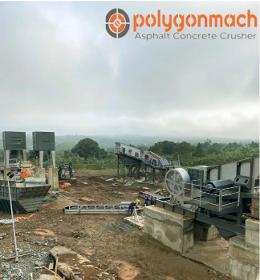
POLYGONMACH MAKINE SANAYI VE TICARET LTD STI
Turkey
700-1000 tph Riverstone Crushing and Screening Plants are sophisticated facilities designed to process large quantities of Riverstones into high-quality aggregates at an impressive throughput capacity ranging from 700 to 1000 tons per hour. These plants consist of specialized primary crushing equipment, advanced screening machinery, and efficient conveyors tailored to handle substantial volumes of Riverstones. The primary crushers, such as jaw crushers and impact crushers, play a pivotal role in breaking down the raw Riverstones into smaller fragments at the initial stage of the processing cycle. This primary crushing phase is essential for preparing the raw material for subsequent processing stages by effectively reducing the size of the Riverstones within the specified high throughput capacity range.
Request for a quote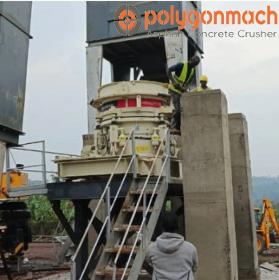
POLYGONMACH MAKINE SANAYI VE TICARET LTD STI
Turkey
The 40-60 TPH Riverstone crushing and screening plants are made for the production of top-quality aggregates from Riverstones effectively at a capacity of 40-60 short tons per hour. The pre-primary crushing machinery, screening equipment, and conveying systems of this plant are specially designed for the processing of Riverstones. These plants break the raw Riverstones into smaller pieces with the help of primary crushers such as jaw crushers or impact crushers. This starts the initial process. The product from primary crushing is later passed through vibrating screens for the purpose of classifying the aggregates into various fractions according to size. This screening procedure is very vital to ensure that the final aggregates produced meet the quality standards for use in various construction, landscaping, and industrial applications. By processing Riverstones systematically, the 40-60 tph Riverstone Crushing and Screening Plants turn them into a better aggregate that will
Request for a quoteResults for
Crushing screening plant - Import exportNumber of results
161 ProductsCountries
Company type
Category
- Crushing and grinding machinery (155)
- Concrete preparing - machinery and equipment (72)
- Compactors and crushers (4)
- Flat screens (3)
- Mining and quarrying - machinery and equipment (3)
- Building materials, manufacture - machinery and equipment (1)
- Concrete constructions (1)
- Excavation - works (1)
- Metal screens for reinforced concrete (1)
- Turning - steels and metals (1)